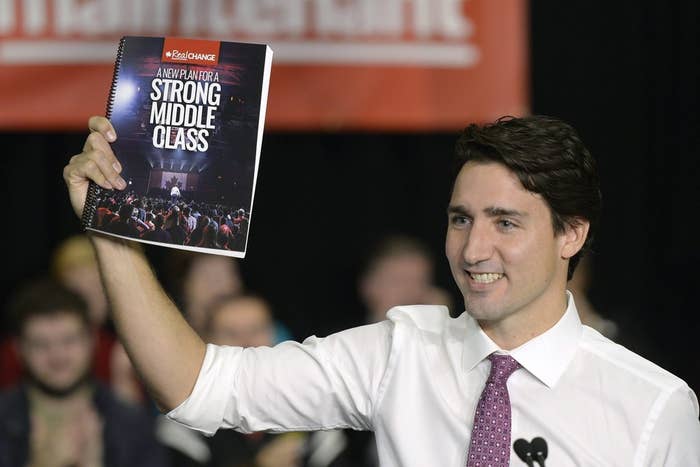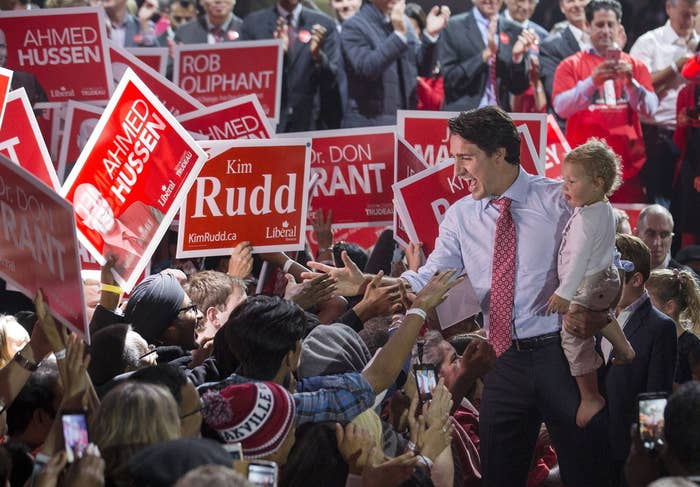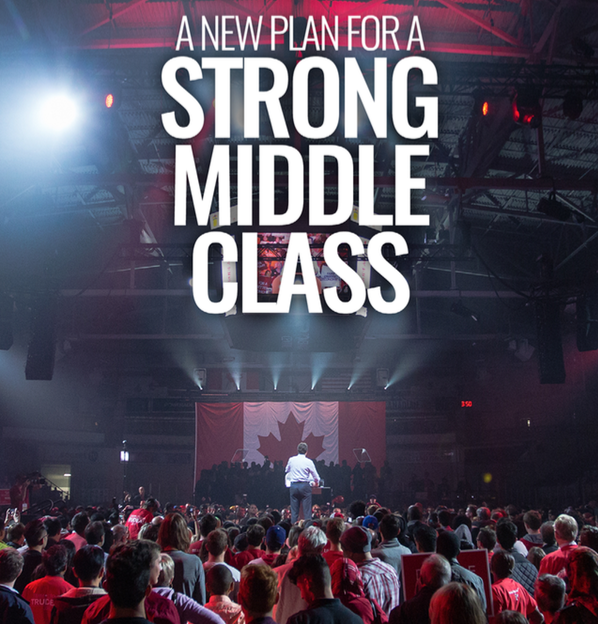The Liberals released their election platform Monday. Here are the highlights, starting with legalizing marijuana.

Reform Canada's election system.
Canadians have used the same system to elect politicians since 1867 but that could come to an end if the Liberals are elected. The Liberals say they are "committed to ensuring that 2015 is the will be the last federal election conducted under the first-past-the-post voting system."
But what will replace it? That's TBD. The Liberals say they'll create an all-party committee to study electoral reform and settle on a new system within 18 months. Ideas on the table include ranked ballots, proportional representation, mandatory voting, and online voting.

Extensive democratic reform.
Everything from the Senate to the Supreme Court would be affected under a suite of democratic reform promises in the platform.
Currently, the prime minister has a blank slate on who is appointed to the Senate. The Liberals say they would create a "non-partisan, merit-based" process that will advise the prime minister on Senate appointments and, they say, end the partisan nature of the senate.
The Liberals are also promising to ban omnibus bills, the practice of cramming many pieces of unrelated legislation into one massive bill. The Harper government has frequently used omnibus bills, and most contentiously stripped a series of environmental laws as part of a budget bill in 2012.
Other reforms include creating a parliamentary oversight body for Canada's spy agencies, banning partisan government advertising, making the process for appointing supreme court judges more transparent, making the Parliamentary Budget Office independent of government, and even changing the rules for daily question period in Parliament.
Repeal (parts of) C-51.
The Liberals, who supported the Conservatives' controversial Bill C-51 in the House of Commons, say they would "repeal the problematic elements" of the recently enacted anti-terror laws. That means narrowing "overly broad definitions," forcing Communications Security Establishment (CSE) to get a warrant to spy on Canadians, making sure Canadians "are not limited" from protests, and more.
The Liberals say they'd also improve oversight of national security agencies, require a review of the Anti-Terrorism Act after three years, and create a community outreach office to stop radicalization.
Lower taxes on the middle class, raise them on the upper class.
If you make between $44,700 and $89,401 your income tax rates will fall under the Liberal plan. The income tax bracket would be dropped from 22% to 20.5%, for an average savings of $670 per person, according to the platform.
The plan also includes a new tax bracket of 33% for people earning over $200,000 per year, up from the current 29%.

More cash for students.
Low-income students would be eligible for more money under the Canada Student Grant program. The Liberals would increase the maximum to $3,000 per year for full-time students and $1,800 per year for those studying part-time. The Liberals would also bump up the income threshold so more students are eligible.
They'd fund the increases by ending "the poorly targeted education and textbook tax credits," but would maintain the tuition tax credit.
Graduates wouldn't have to repay any student loans until they're making at least $25,000 per year, either.
Shift to peacekeeping.
The Liberals say they would "renew" Canada's focus on peacekeeping missions, which would mean working with the United Nations to provide "specialized capabilities" like medical teams, engineers, and air transport during peacekeeping operations. The military would also have "well-trained personnel" that can be deployed more quickly during crises.
While the Liberals would pull out of Canada's combat mission in Iraq, focusing instead on training local forces, humanitarian support, and accepting more Syrian refugees, they would "remain fully committed" to Canada's current role in Ukraine and other parts of Eastern/Central Europe.
There's no new money for the military in the Liberal platform, but they say they would tackle "mismanagement" to better use the money available.
They would not buy the F-35 stealth fighter jet, for instance. Instead, they'd replace Canada's aging CF-18s with one of the cheaper options. The Liberals would use the money saved on that procurement to invest in the navy. They also say they would speed up Canada's notoriously slow military procurement process.
More money for veterans.
The Liberals would invest in care for veterans over the next four years, including $100 million to expand benefits for injured/ill veterans; $320 million for an education benefit to help veterans re-enter the workforce; re-opening the nine Veterans Affairs Canada offices closed by the Tories; hiring more case managers and mental health professionals; and more.
Deficits now, surpluses later.
The Liberals are the only one of the three major parties not to promise immediate balanced budgets. Instead, the Liberals are promising to invest billions of dollars in infrastructure and transit.
The party says it will run deficits of less than $10 billion over the next two years and then balance the budget in 2018-2019.


